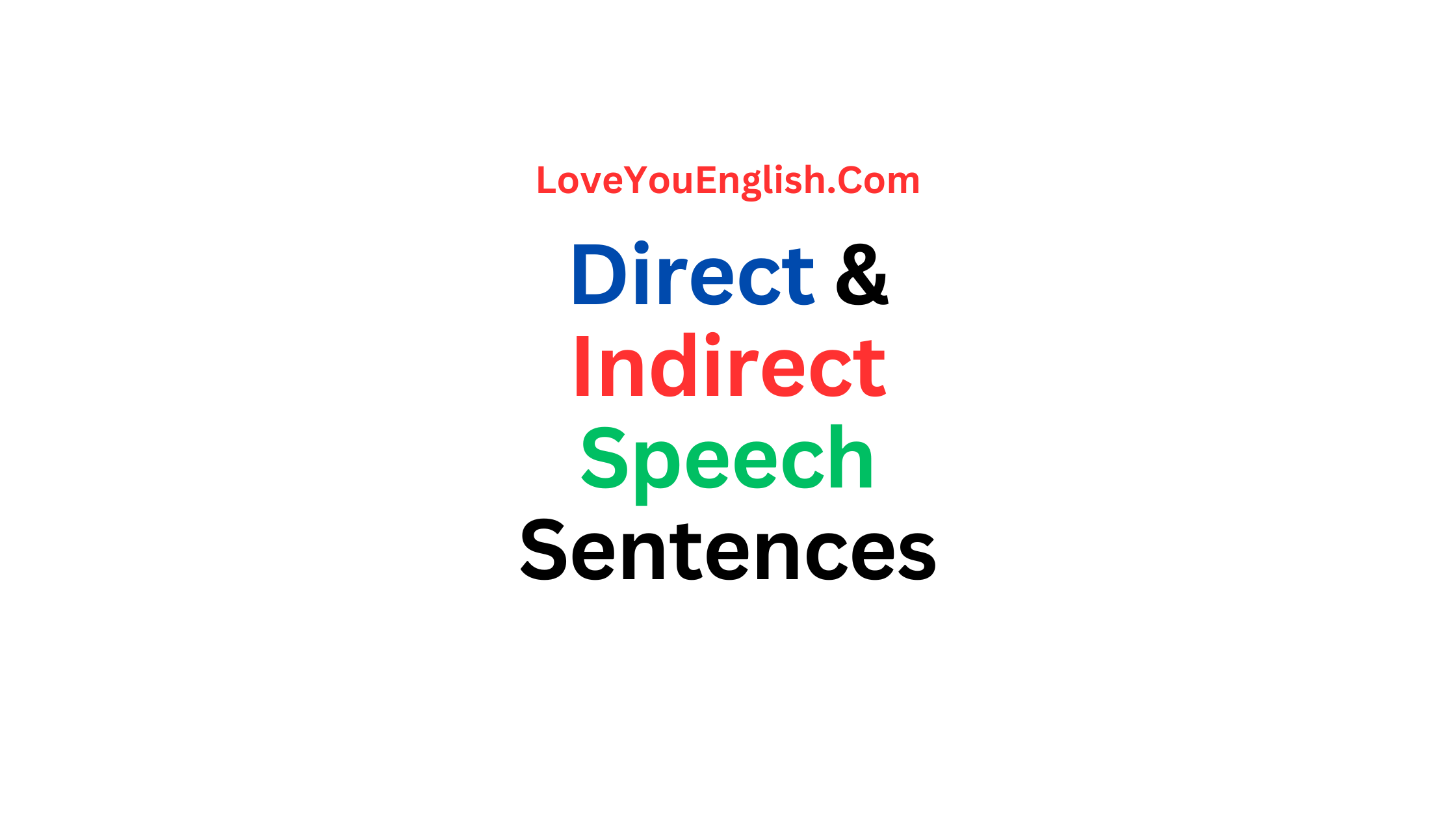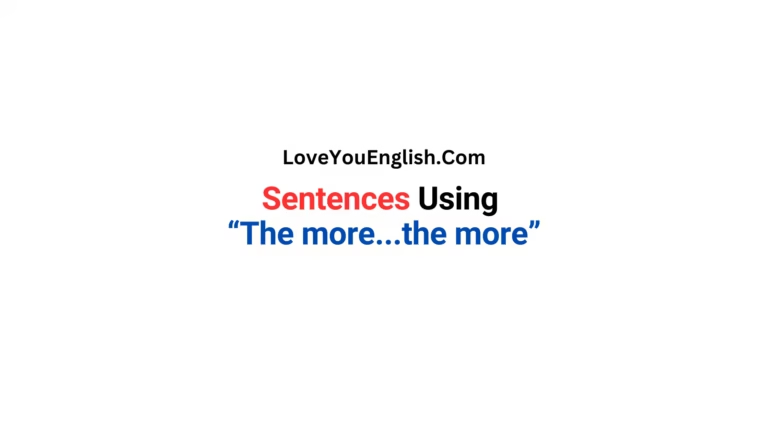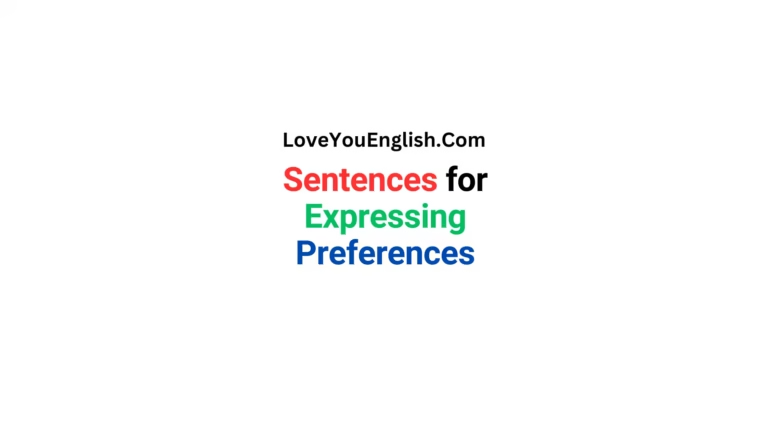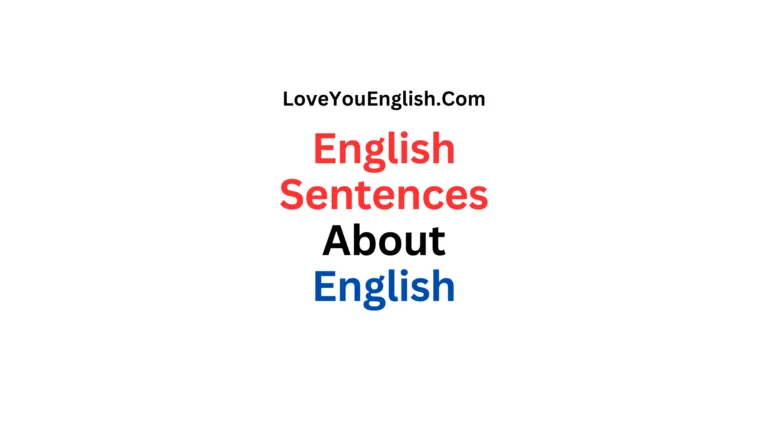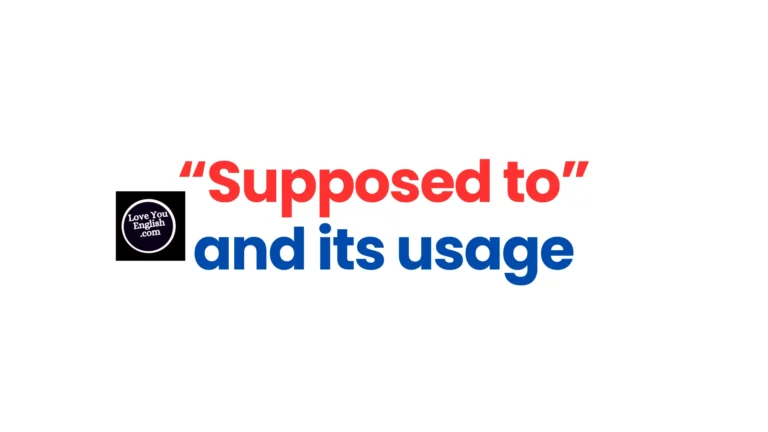50 Direct and Indirect Speech Sentences
Direct and indirect speech are important parts of English grammar used to report what someone says.
In this post, 50 Direct and Indirect Speech Sentences, you will learn clear and simple examples that show how to change direct speech into indirect (reported) speech.
These sentences are written in easy English, making them suitable for students, beginners, and ESL learners.
Practicing these examples will help improve your grammar accuracy, sentence transformation skills, and exam performance.
This topic is part of our English Sentences for English learners.
Statements:
- Direct: He said, “I am happy.”
Indirect: He said that he was happy. - Direct: She said, “I love chocolate.”
Indirect: She said that she loved chocolate. - Direct: John said, “I will call you tomorrow.”
Indirect: John said that he would call me the next day. - Direct: They said, “We are going to the park.”
Indirect: They said that they were going to the park. - Direct: The teacher said, “You have done a great job.”
Indirect: The teacher said that I had done a great job. - Direct: She said, “I can solve this problem.”
Indirect: She said that she could solve that problem. - Direct: He said, “I have already finished my work.”
Indirect: He said that he had already finished his work. - Direct: She said, “I am reading a book.”
Indirect: She said that she was reading a book. - Direct: They said, “We were watching TV.”
Indirect: They said that they had been watching TV. - Direct: He said, “I might attend the meeting.”
Indirect: He said that he might attend the meeting.
Questions:
- Direct: He asked, “Are you coming?”
Indirect: He asked if I was coming. - Direct: She asked, “What is your name?”
Indirect: She asked what my name was. - Direct: They asked, “Have you seen the movie?”
Indirect: They asked if I had seen the movie. - Direct: He asked, “Where do you live?”
Indirect: He asked where I lived. - Direct: She asked, “Can you help me?”
Indirect: She asked if I could help her. - Direct: John asked, “When will the train arrive?”
Indirect: John asked when the train would arrive. - Direct: The boy asked, “Why are you crying?”
Indirect: The boy asked why I was crying. - Direct: He asked, “Who broke the window?”
Indirect: He asked who had broken the window. - Direct: She asked, “Did you complete the assignment?”
Indirect: She asked if I had completed the assignment. - Direct: They asked, “What time does the show start?”
Indirect: They asked what time the show started.
Commands:
- Direct: He said, “Close the door.”
Indirect: He told me to close the door. - Direct: She said, “Please help me.”
Indirect: She requested me to help her. - Direct: They said, “Don’t touch the stove.”
Indirect: They warned me not to touch the stove. - Direct: He said, “Finish your homework.”
Indirect: He ordered me to finish my homework. - Direct: The teacher said, “Be quiet.”
Indirect: The teacher told the class to be quiet. - Direct: She said, “Don’t be late.”
Indirect: She advised me not to be late. - Direct: The officer said, “Stand in a line.”
Indirect: The officer instructed us to stand in a line. - Direct: He said, “Please pass me the salt.”
Indirect: He requested me to pass him the salt. - Direct: She said, “Don’t waste water.”
Indirect: She advised us not to waste water. - Direct: They said, “Work hard to succeed.”
Indirect: They encouraged us to work hard to succeed.
Exclamatory Sentences:
- Direct: She said, “What a beautiful day!”
Indirect: She exclaimed that it was a beautiful day. - Direct: He said, “How wonderful this is!”
Indirect: He exclaimed how wonderful that was. - Direct: They said, “Hurrah! We won the match.”
Indirect: They exclaimed with joy that they had won the match. - Direct: She said, “Alas! I failed the test.”
Indirect: She exclaimed with sorrow that she had failed the test. - Direct: He said, “What a tragedy!”
Indirect: He exclaimed that it was a tragedy. - Direct: She said, “Wow! This cake is delicious.”
Indirect: She exclaimed with delight that the cake was delicious. - Direct: They said, “Bravo! You did well.”
Indirect: They applauded me saying that I had done well. - Direct: He said, “Oh no! I forgot my keys.”
Indirect: He exclaimed with frustration that he had forgotten his keys. - Direct: She said, “What a horrible experience!”
Indirect: She exclaimed that it was a horrible experience. - Direct: He said, “How intelligent you are!”
Indirect: He exclaimed how intelligent I was.
Mixed:
- Direct: He said, “I don’t know where she is.”
Indirect: He said that he didn’t know where she was. - Direct: She said, “I can’t come because I am busy.”
Indirect: She said that she couldn’t come because she was busy. - Direct: They said, “We have never been to Paris.”
Indirect: They said that they had never been to Paris. - Direct: He said, “I will go if I have time.”
Indirect: He said that he would go if he had time. - Direct: She said, “I am studying while he is watching TV.”
Indirect: She said that she was studying while he was watching TV. - Direct: They said, “We could solve the puzzle easily.”
Indirect: They said that they could solve the puzzle easily. - Direct: He said, “I wish I were younger.”
Indirect: He said that he wished he were younger. - Direct: She said, “I may not attend the event.”
Indirect: She said that she might not attend the event. - Direct: He said, “If I had money, I would buy a car.”
Indirect: He said that if he had money, he would buy a car. - Direct: They said, “We shall overcome this challenge.”
Indirect: They said that they would overcome that challenge.
You may also like these English learning articles:
- 150 Basic English Sentences for Kids
- 100 English Sentences About Life
- 100 Advanced English Sentences
- 100 C2-level English Sentences
